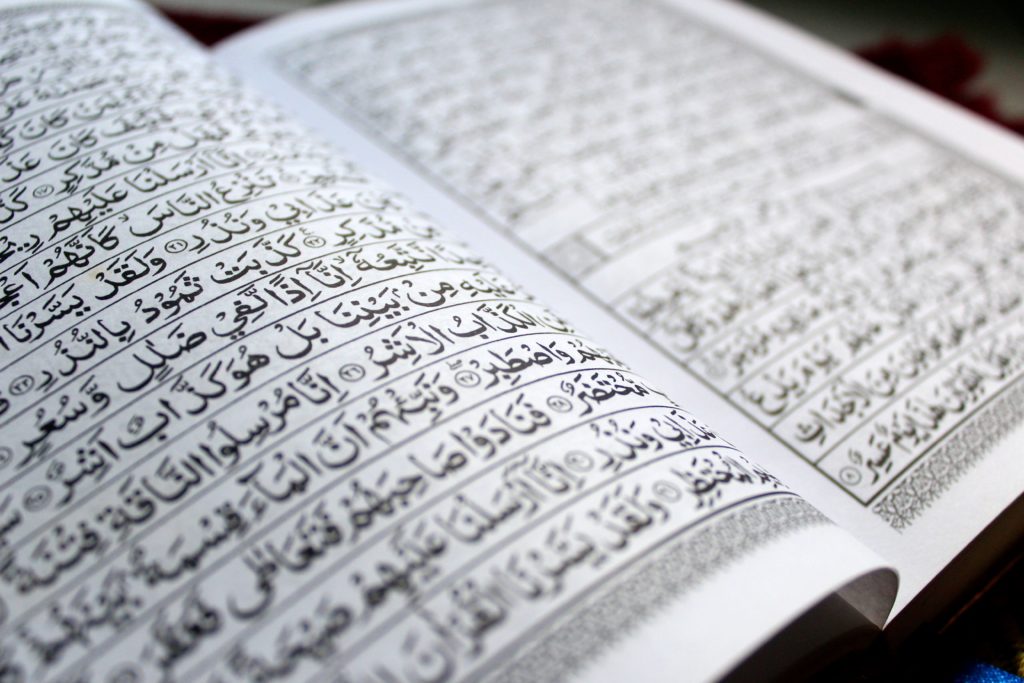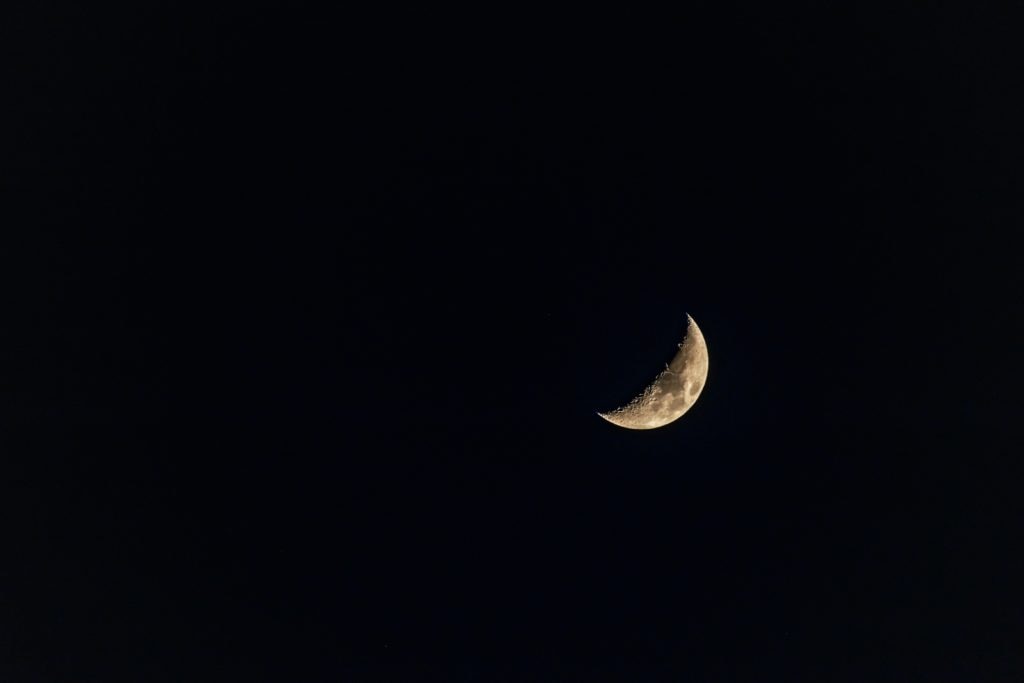Ataul Fatir Tahir

This Ramadan will be peculiar for most; the absence of attending mosques for prayers, not offering Tarawih alongside scores of fellow Muslims or listening to religious talks and then collectively breaking fasts.
Despite the disorientation, the fact we can continue, during lockdown, the practices Ramadan promotes glorifies the universality and plasticity of Islam. In every challenging situation there is “ease” for Muslims to continue their progression towards God. As the Holy Quran wonderfully explains, it is not the “flesh” or “blood” of sacrificed animals that “reaches Allah”, “but it is your righteousness that reaches Him.” (Surah al-Haj, Ch.22: V.38)
Entering populated mosques during Ramadan or listening to insightful lectures on the Holy Quran will most definitely be missed, however the fundamentals of Ramadan – practised by the Prophetsa of Islam – will remain applicable and easy to adhere to even during this lockdown.
Here are five areas of focus that the Prophet of Islam, peace and blessings of Allah be upon him, payed special importance to during the month of Ramadan. From the comfort of our homes, all Muslims can follow them.
Fasting
Approximately two years after the migration of the Prophetsa from Mecca to Medina, Allah made fasting obligatory during the month of Ramadan when He revealed verse 184 of Surah al-Baqarah. The Prophetsa of Islam therefore fasted for 8 or 9 (according to some narrations) months of Ramadan during the rest of his lifetime.

The very act of fasting is a potent and effective form of worship the Holy Prophetsa would carry out even outside the days of Ramadan. He would fast up to 10 days a month which equates to a total of four months annually. (Haqaiqul Furqan, vol. 1, p.302)
The benefits of fasting, explained by the Prophet of Islamsa seem endless.
In the two most authentic books of ahadith, the Holy Prophetsa is reported to have said, “…whoever fasts in the month of Ramadan out of sincere faith, and hoping for a reward from Allah, then all their previous sins will be forgiven.” (Sahih Bukhari and Sahih Muslim)
He explained how fasting is actually very dear to Allah, Who has kept a special “gate” in heaven exclusively for those who fasted, called “ar-Rayan”(Sahih Bukhari). In fact, the Prophetsa said that Allah says a person “left his food, drink and desires for My sake” and therefore “the fast is for Me. So, I will reward (the fasting person) for it and the reward of good deeds is multiplied ten times.”(Sahih Bukhari). The same narration can also mean that “I [God] will be the reward for it”, meaning those who fast will achieve closeness to God Himself.
In yet another hadith he said, “No servant fasts on a day in the path of Allah except that Allah removes the hellfire seventy years further away from his face.” (Sunan Abu Dawud)
Ramadan at home is a prime opportunity to ensure we fast every day and reap its benefits. Unless, of course, illness or necessary travel stop us.
“A Shield”: The habit-forming-month
Stress levels, irritation and even anger have shown to be by-products of lockdown during this pandemic. In fact, domestic abuse cases have risen across the world (A New Covid-19 Crisis: Domestic Abuse Rises Worldwide, nytimes.com, 4 April, 2020). For Muslims, Ramadan should eradicate all expressions of anger and disputes, this is what the Prophetsa taught.
Islam is a religion of rationale and holds deep spiritual and physical philosophies within its teachings. The purpose of Ramadan, the Prophetsa explained, isn’t just to refrain from food and drink, rather the kernel of Ramadan preaches to consume spiritual nourishment and excel in morals. “…fasting is prescribed for you…so that you may become righteous”, as the Holy Quran puts it.(Surah al-Baqarah, Ch.2: V.184)
The Holy Prophetsa explained that some “fast and get nothing from their fast except hunger…”(Ibn-e-Majah). Hethen elaborated and said, “Whoever does not give up evil and ignorant speech…Allah has no need of his giving up his food and drink.”(Ibn-e-Majah) To reform ourselves internally, to introspect, to adopt high morals and stay clear of arrogance, quarrelling or contempt are the practices the Holy Prophetsa greatly emphasised during Ramadan. He always instructed Muslims to control their anger and stressed developing this habit across the days of Ramadan.
The Prophetsa famously said, “Fasting is a shield; when one of you is fasting, he should neither behave in an obscene manner nor foolishly. If a man fights or abuses him, he should say ‘I am fasting, I am fasting.’”(Sunan Ibi Dawud). Though abstaining from fights and disputes is a hallmark of believers in even normal circumstances as mentioned in the Holy Quran (Ch.25: V.64), Ramadan provides the habit-forming-month to instil these morals.
In another often-heard narration, the Prophetsa explained that when Ramadan starts “the gates of the heaven are opened, and the gates of Hell are closed and the devils are chained.”(Sahih Bukhari) Of course, this statement begs action on behalf of the person reading it; Ramadan provides every opportunity for someone to be saved from hell and enter heaven.
The core purpose Ramadan aims to instil is an internal revolution of high morals, a “shield” against immorality.
The Holy Quran
The reason why Ramadan and the Quran are so interlinked is because Allah declares:
“The month of Ramadan is that in which the Quran was sent down as a guidance for mankind with clear proofs of guidance and discrimination [between right and wrong]…”(Surah Al-Baqarah, Ch.2: V.186)

Further, the Holy Prophetsa would revise the Quran with angel Gabriel every Ramadan and in the year of his demise, he went through the Holy Quran twice with Gabriel. Therefore, one recitation, at least, will enable us to follow the practice of the Holy Prophetssa.
In a narration, the Holy Prophetsa said, “The fast and the Quran are two intercessors for the servant of Allah on the Day of Resurrection. The fast will say: ‘O Lord, I prevented him from his food and desires during the day. Let me intercede for him.’ The Quran will say: ‘I prevented him from sleeping at night. Let me intercede for him.’ And their intercession will be accepted.”(Musnad Ahmad)
While reciting each word of the Holy Quran brings reward according to the Holy Prophetsa, we should delve into its inner meanings and begin to read the commentaries by the Promised Messiahas and those of his khulafa.
The Promised Messiahas in the commentary of, “The month of Ramadan is that in which the Quran was sent down…” explains how this was a grand prophecy for the future. The prophecy was that a time would come when all sorts of books and literature would be widespread (our current time!) and it would be incumbent on Muslims to adhere to and focus on reflecting upon reading the Holy Quran during that climate.(Tafseer Hazrat Masih-e-Maud, p.313)
As the fast wind
Hazrat Ayeshara noted how the Holy Prophetsa “was the most generous of all people, and he used to become more generous in Ramadan…” and would “…be more generous than the fast wind” during Ramadan. (Sahih Bukhari)
Generosity by the wider public has already been witnessed during Covid-19, including by Muslims. With the arrival of Ramadan and the spread of the pandemic, our level of charity and giving should become like “the fast wind”, of course, according to capacity.
However, monetary aid is not the only form of charity taught by the Prophet of Islamsa, rather to “help the needy” is charity and to “…perform all that is good and keep away from all that is evil” was also regarded as “charitable deeds” by him.(Sahih Bukhari)
In other narrations the Prophetsa classified charity as; “to smile”; “to promote good deeds and to prevent others from doing evil”; “to guide a person with defective vision”; “to remove troublesome things like thorns and bones from the road”; “to pour water from your jug into the jug of your brother”.(Sahih Bukhari)
This month, even if we are tight on budgets, there are countless opportunities for all Muslims to follow the Prophet of Islamsa and excel in diverse forms of charity.
Prayers and the Night of Destiny

As a spiritual booster-month, it was the practice of the Holy Prophetsa to perform extra voluntary prayers during the month of Ramadan. He also offered congregational Tarawih prayers three times in him lifetime and then began offering them at home in fear that if he continued in congregational at the mosque, the Tarawih would be made compulsory upon all Muslims.(Sahih Bukhari). Nevertheless, he offered Tarawih prayers but gave preference toward offering Tahajjud prayers, for which Tarawih was a kind of insurance policy, in case one could not wake up for Tahajjud.
The Holy Prophetsa advised to “seek help by eating suhur (breakfast) for fasting that day, and by taking brief rest (at midday) for praying that night.”(Ibn-e-Majah)
The importance of Tahajjud prayers during the month of Ramadan was further highlighted by the Holy Prophetsa who said, “Whoever prayed at night in it (the month of Ramadan) out of sincere faith and hoping for a reward from Allah, then all his previous sins will be forgiven.” (Sahih Bukhari)
As Ramadan would approach its final leg, during the last ten days, the Holy Prophetsa would “tighten his belt” as Hazrat Ayeshara would say,and begin worshipping more profusely in order to find the Laylat-ul-Qadr “The Night of Destiny”. In Chapter 97 of the Holy Quran, Allah refers to a night in which the Holy Quran was released, a night that would be better than “a thousand months” in which “…descend angels and the Spirit by the command of their Lord…”
The Holy Prophetsa would go into Itekaf (solitary confinement) and worship Allah day and night. He would also advise Muslim to search for Laylat-ul-Qadr especially “in the odd nights of the last ten days of Ramadan.” (Sahih Bukhari)
Even though, most likely, lockdown will continue for most throughout Ramadan. The very spirit of Ramadan cannot be taken away. Islam’s universality also enables us to carry out the most important forms of worship from the comfort of our very homes. Lockdown gives us a chance to slow down in Ramadan, no more travelling around, no more picking the kids up or visiting family and friends; it’s a time to focus on the essence of Ramadan along with our family.

